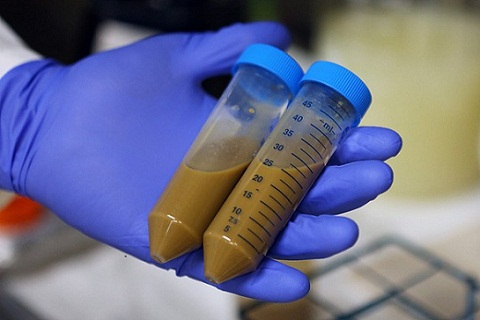5 Reasons Your Probiotics Are Not Working and What You Can Do About It
So, you’ve already hopped on the probiotic train, bought and began to use a capsule filled with healthy bacteria to help boost your microbiome. But, what if you haven’t started to really feel the benefits that were promised to you when you read articles exactly like this one. Does that sound familiar to you?
If it does, you might be on the verge of chalking probiotics up to just another health fad with not a lot of science to back it up. While probiotics is certainly a scientifically backed way to improve your microbiome and overall health, there are some very simple reasons why your probiotics might not be helping all the ways they could. In fact, anything from processed foods in your diets, stress, and antibiotics both in the form of medicine or in the form of the food that you eat could have a massive impact on the population of the healthy microorganisms in your microbiome.
Knowing this doesn’t mean that you can quickly and easily change the lifestyle choices that are impacting your microbiome. How can you tell whether the supplement you’re taking is actually working?
How long should it take for probiotics to start working?
Here are five things to consider when you have started taking probiotics, but haven’t felt any of the promised impacts you have expected.
The Strains Are Dead on Arrival
If you didn’t already know, it’s important for you to know that some supplements both liquid and powder are allowed by law to label their probiotics with the numbers of living strains they contained at the time of its manufacture. That means that the bottle of probiotics your bought that said it had 50 billion CFU (colony forming units) could have zero living CFU by the time you actually purchased the probiotics. That means that your probiotics could be offering you nothing but a placebo effect that probably won’t have any noticeable or lasting impacts on your health.
Much like microorganism, probiotics are incredibly sensitive organisms and need to handled and treated much differently than normal vitamins, minerals, or other supplements you might take in an attempt to improve your health.
Most brands need to be refrigerated not only once you get them home, but throughout their transport and during the time they spend on the shelf. If they’re not refrigerated, there is a good chance that your probiotics are not living.
In order to avoid this happening to you, make sure you know how many CFUs are present in your probiotic pill upon purchase and look into the shelf life of your probiotic.
The Strains Aren’t Surviving Your Digestive Tract
Taking a probiotic is a veggie-based capsule might seem like the right idea, but it turns out that vegetable shield are potentially not strong enough to protect the bacteria in that capsule from the acid that exists in your stomach that you body needs to break down the food that you eat every day.
In order for your probiotics to actually have an impact on your microbiome and the rest of your body, the microbes within those capsules are going to have to survive your stomach and make their way to your gut. Unfortunately, as much as 95 percent of the microbes in your probiotic capsule can die in your stomach.
Because of this, synthetic, delayed-release capsules are a good thing to consider when you are looking for your probiotics to have a better impact.
Delayed-response capsules that have longer release capsules are probably the best way to go. One thing to consider is a form of probiotics known as Hyperbiotics. They use their patented technology that releases probiotics into your gut over the course of eight hours. That means that your body will start reaping many more of the benefits of the supplements you are taking.
Lack of Consistency
If you are wondering why your probiotics aren’t helping your body the way you want them to, you might want to take stock and be honest with yourself regarding how often and how consistently you are really using your probiotics.
The truth is, is that inconsistency in terms of taking your probiotics can seriously depress their ability to actually have an impact.
Repeated use is key to ensuring that the probiotic bacteria can colonize in your gut and can help you experience all the healthy benefits you wanted in the first place. Luckily, many studies have suggested that it takes just three weeks to establish a habit, so if you set reminders for yourself for the first few weeks, the rest of the way should be a piece of cake!
You’re Taking the Wrong Strains
There are a lot of factors that can have an impact on your gut flora – from stress, to toxins that you are putting in your body through your diet – and it’s your job to make sure that your probiotic is covering all the bases if you truly want to feel its impact.
Another thing to consider is whether or not the probiotics that you’re using are natural to your body. Some probiotics use soil-based organisms and they can actually be harmful for your body as opposed to helpful if you do not have enough healthy bacteria natural to your gut already making up your microbiome.
Your Expectations Are Unrealistic
For all that probiotics can do for you, it would be foolish to treat them as a cure all for everything you want to improve about your health.
If you are a fairly healthy person to start out and are looking for ways to marginally improve the way your body behaves and acts, probiotics could be an amazing way to put you over the edge. If, on the other hand, you are dealing with health issues such as being overweight, or simply do not exercise enough or treat your body with the respect it deserves, chances are good your probiotic consumption won’t go a long way in helping you achieve a healthier self.
In the end, probiotics can be a great help to a healthy body. If you take close care to make sure that you are giving your probiotics their best chance to colonize and grow, you will likely enjoy the benefits greatly.




